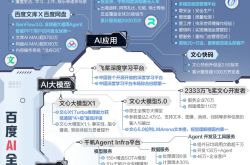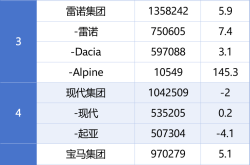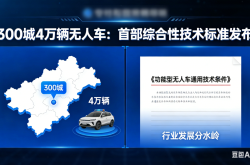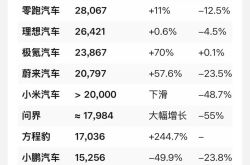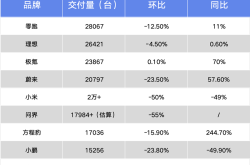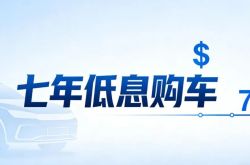"LeDao L60", "MONA M03", "Lixiang L6", NIO, Xpeng, and Lixiang Encircle and Suppress Tesla
![]() 09/30 2024
09/30 2024
![]() 503
503
Author | Lao Mian
Editor | Dexin
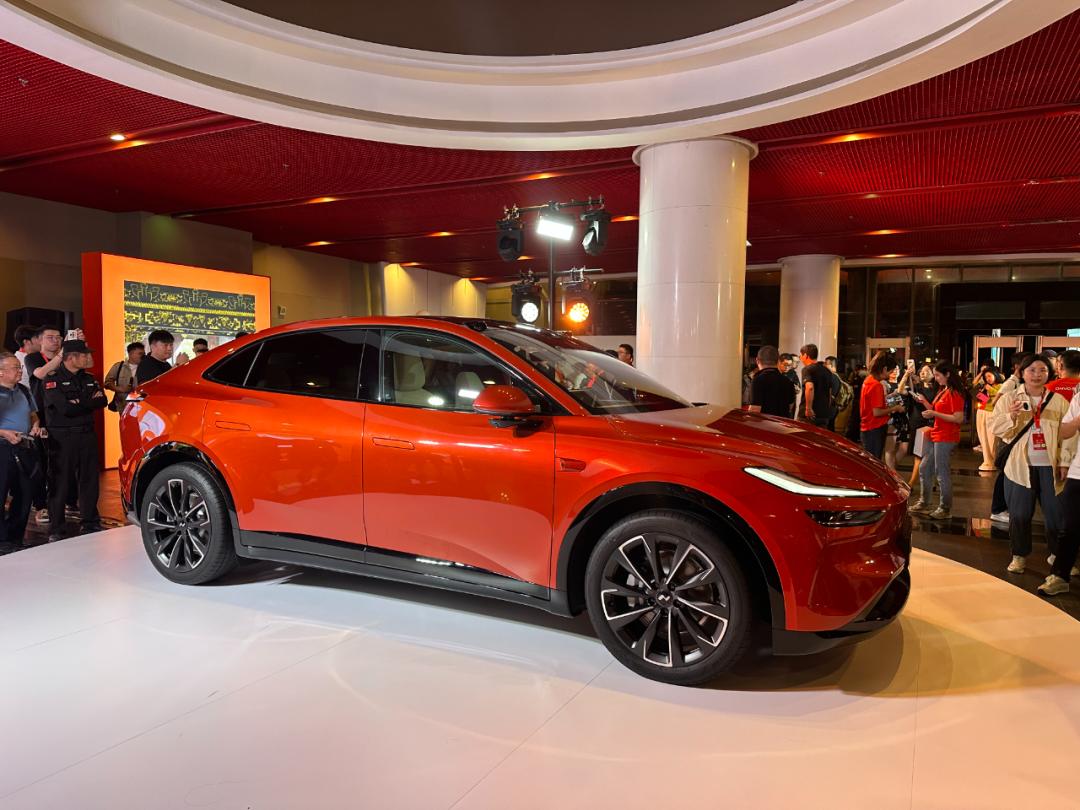
On September 19, NIO's new brand LeDao officially launched its first model, the LeDao L60, positioning it as a family-oriented smart electric SUV.
60kWh standard range version, priced at RMB 206,900
85kWh long-range version, priced at RMB 235,900;
If using the BaaS battery rental service, it starts at just RMB 149,900, with a monthly battery rental fee of as low as RMB 599.
LeDao L60 will commence nationwide deliveries from September 28th.
In subsequent media interviews, NIO's Chairman and CEO William Li stated that he would not release sales figures, but the server capacity had been expanded fivefold in advance, and it still crashed.
William Li said that the current Hefei factory can produce 10,000 NIO vehicles and 20,000 LeDao vehicles per month.
However, the launch of new vehicles faces challenges in ramping up production of both complete vehicles and components, and LeDao L60 will strive to achieve the following delivery targets:
October: 5,000 units;
November: 10,000 units;
January next year: 16,000 units;
March next year: 20,000 units.
I. Filling the Gap in NIO's Market
In May 2024, the LeDao brand was launched, and pre-sales for the first model, the LeDao L60, began at a starting price of RMB 219,900.
Within NIO, the LeDao L60 project was initiated in 2021, with an initial development goal of directly competing with Tesla's Model Y. "A premium, larger Model Y with swappable batteries, costing 10% less than the Model Y."
The final selling price of the L60 is RMB 13,000 lower than the pre-sale price, making it RMB 43,000 cheaper than the entry-level Model Y.
William Li stated in an interview after the launch that at this pricing, "LeDao still maintains a gross margin."
According to official sources, the LeDao L60 is the only model in its class to adopt a full-vehicle 900V high-voltage architecture, equipped with a self-developed 900V silicon carbide motor. Coupled with a drag coefficient of Cd 0.229, it achieves the lowest energy consumption in its class at 12.1kWh per 100 kilometers.
In terms of smart cockpits, the LeDao L60 employs the 8295P high-performance cockpit chip, with AI computing power reaching 60TOPS. It is the first to feature the NT.Coconut Coconut Intelligence System, which includes XiaoLe AI, a family companion that goes beyond voice assistant capabilities to recognize and remember users.
LeDao claims to offer true vehicle intelligence, aiming to lead for three to five years and remain mainstream for eight to ten years.
In terms of autonomous driving, the LeDao L60 comes standard with the OSD LeDao Intelligent Driving System. Its highway and urban navigation-assisted NOA covers 99.99% of the country, with full-scenario navigation-assisted NOA available in 726 cities, covering over 2,700 county-level administrative regions. Its smart parking success rate exceeds 99%, with vehicles able to park in under 40 seconds.
The LeDao L60 also features the ISS Intelligent Smooth Stop System, which the company claims "eliminates braking jerkiness, making it comfortable even for the elderly and children."
With a minimum turning diameter of 10.8m in its class, the L60 can make tight turns with ease.
In terms of battery safety, LeDao vehicles share NIO's NIO Power full-scenario energy replenishment service system, which offers swappable, chargeable, and upgradable batteries.
According to plans, by the end of this year, there will be over 1,000 available battery swap stations, allowing users to experience the convenience of a fully automated 3-minute battery swap upon vehicle delivery.
Simultaneously, LeDao's charging network has access to over 23,000 self-built superchargers and over one million third-party charging stations, ensuring charging and swapping access in every county.
Furthermore, relying on NIO's existing battery swap system, LeDao L60 batteries also enjoy "lifetime medical insurance," with each battery swap equivalent to a 360° comprehensive battery inspection, detecting even minor scratches as small as 4mm in size.
II. NIO, Xpeng, and Lixiang Join Forces to Challenge Tesla
In 2023, Tesla's Model Y sold over 1.2 million units worldwide, making it the best-selling single model globally.
During the launch event, Aite Cheng repeatedly compared the LeDao L60 to the Model Y. Both internally and externally, the L60 views the Model Y as a key benchmark.
However, what's even more interesting is that with the launch of the LeDao L60, NIO, Xpeng, and Lixiang now each have models that directly and deeply compete with Tesla.
The starting price of the LeDao L60 is RMB 43,000 lower than that of the Model Y. Considering that the former includes an intelligent driving solution in its price and offers advantages in household use, the L60 presents exceptional value for money compared to the Model Y.
The Lixiang L6, as Lixiang's most affordable family SUV to date, overlaps significantly in pricing with the Model Y. Its advantage lies in the extended range offered by its range-extender solution and its suitability for household use, making it essentially a range-extended version of the Model Y. Five months after its launch, it has delivered over 100,000 units.
Xpeng, on the other hand, has set its sights on the Model 3. Its recently launched M03, which debuted last month, can be seen as a half-price alternative to the Model 3. While some compromises were made in terms of configuration, its starting price of RMB 120,000 has made it an affordable substitute for the Model 3.
According to Xpeng's official data, orders for the Xpeng MONA M03 surpassed 10,000 within 52 minutes of its launch and exceeded 30,000 within 48 hours.
For NIO, Xpeng, and Lixiang, Tesla represents not only an inevitable competitive force but also an excellent benchmark.
Just as every domestic smartphone brand benchmarks against Apple, these companies aim not only to capture a share of the mid-to-high-end market dominated by Apple but also to demonstrate to consumers that their products are on par with, if not superior to, Apple's in some aspects.
However, the ultimate goal remains capturing a larger market share, regardless of whether it comes at the expense of Apple or not.
Returning to the three aforementioned models, the LeDao L60 is a larger and more affordable swappable battery version of the Model Y, the Lixiang L6 is an extended-range Model Y, and the Xpeng MONA M03 is a half-price Model 3.
Superficially, they are all competing against Tesla, but in reality, their true targets extend beyond just Tesla.
III. Cutting Off the Retreat Route for 150,000-Yuan Fuel SUVs
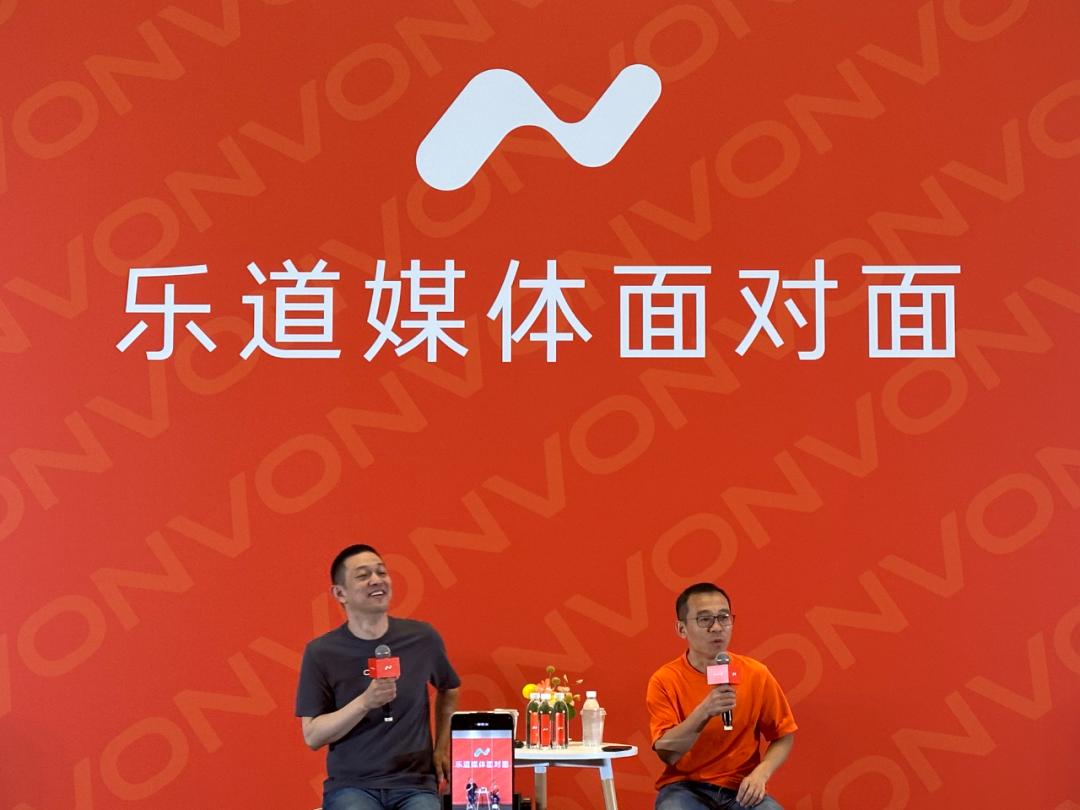
While the LeDao L60 boasts impressive cost-effectiveness, it faces significant challenges as a first model from a newly established subsidiary brand aiming to directly compete with the Model Y.
Apart from Tesla's entrenched brand advantage and product strength, the L60 must also contend with competitors like Xpeng G6, IM Motor LS6, and BYD Song L EV in the same price range.
The LeDao L60 chooses to differentiate itself by further meeting the needs of family vehicles.
A prime example is its oversized built-in car fridge, a feature not found in the aforementioned competitors. Co-developed by Midea Group and NIO, this fridge boasts a 52L capacity (for comparison, the Lixiang L7's fridge has a 12L capacity) and supports temperature adjustment via the vehicle's infotainment system or smartphone.
However, while such a feature may be a nice-to-have, it's unlikely to be a decisive factor in a customer's purchase decision. Other advantages like spaciousness and high configuration, while appealing, have become table stakes in the highly competitive 200,000-250,000 yuan SUV market.
But what if we compare the L60 to less well-equipped fuel SUVs?
In that case, the LeDao L60 can be said to achieve a dimensional reduction strike.
In fact, while the Model Y may initially appear to be the LeDao L60's primary rival, NIO's strategy has shifted significantly since the L60's launch.
"The LeDao L60 is the most significant challenger to joint venture mid-sized fuel SUVs and will accelerate the transition from fuel vehicles to electric vehicles," said William Li.
The primary reason for this is the introduction of the BaaS program, which has positioned the LeDao L60 within the price range of mid-sized fuel SUVs like the Toyota RAV4.
In this segment, the LeDao L60 excels in both advanced intelligent driving capabilities and household comfort.
Furthermore, its undeniably lower ownership costs make it an attractive option for fuel vehicle users.
NIO estimates that fuel SUV owners who use 92-octane gasoline spend approximately RMB 800-850 per month on fuel. In contrast, the monthly battery rental fee for the L60, combined with founder's edition benefits, totals just RMB 480, equivalent to the cost of filling a 60L tank with 92-octane gasoline.
Additionally, while fuel vehicles typically require annual maintenance, the LeDao L60 offers a maintenance plan that covers three years without the need for further visits to the dealership, reducing maintenance costs.
From this perspective, the LeDao L60's apparent frontal assault on the Model Y is more of a feint. Its true intention lies in leveraging the BaaS program to capture the market for 150,000-yuan mid-sized fuel SUVs.
The ambition behind this strategy is clear.

